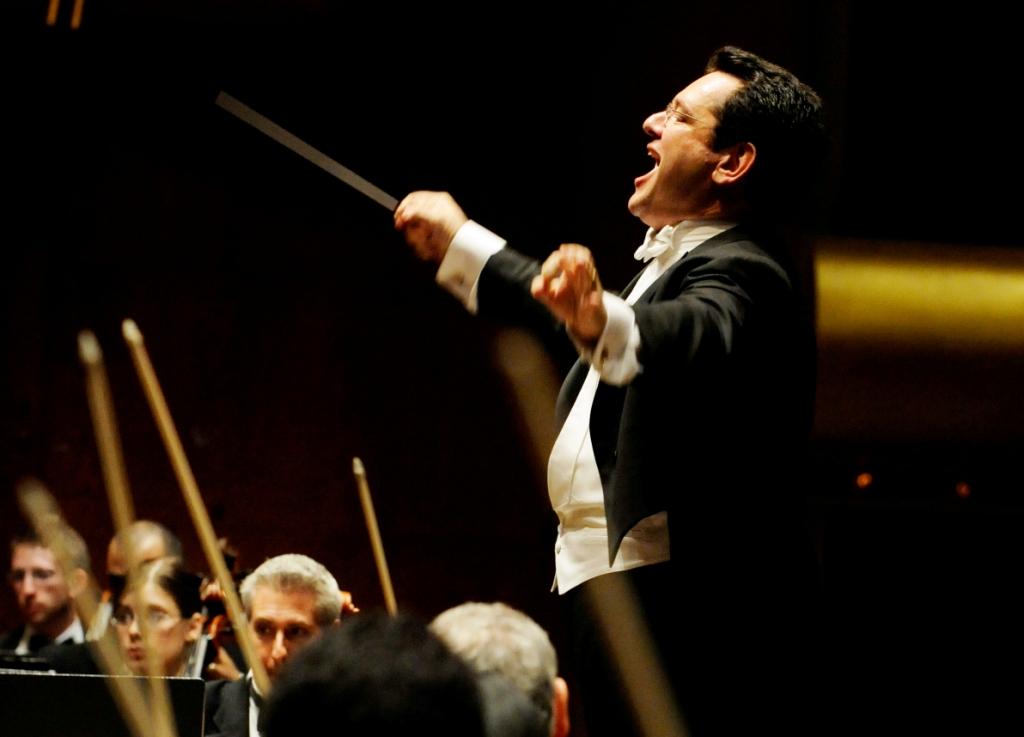In a program called “Cinematic Genius”, the conductor David Bernard explored concert pieces that were later incorporated into film. Johann Strauss’s “On the Beautiful Blue Danube” seems far-fetched for a film about outer space, but Stanley Kubrick pulled off wonders with it in “2001, A Space Odyssey” when he used dreamier Strauss moments to represent timelessness in space. Bernard left excerpts of the film run on screen during a complete performance of the Strauss, and it didn’t always mesh in mood–exciting dance music as a backdrop for a person walking down a spaceship corridor, for example–but you’ve got to give Bernard credit for a charming, well-prepared performance of this concert staple. I also applaud him for choosing a stylistically well- balanced program, one that presented music from three different centuries.
Drew Petersen, who performed Mozart’s Piano Concerto No. 20 in D Minor, K.466, is a 16-year-old student at the Manhattan school of Music Pre-College division. He has considerable technique—his notes were in place, the cadenza playing was imaginative, and he has done a lot of wonderful charitable work for communities who need young artists like him. Unfortunately, he had to perform on a small Kawai piano, and there was little resonance and warmth of sound. Regarding a cinematic decision, I didn’t understand the need to roll the entire closing credits of the film “Amadeus” to the concerto’s slow movement. It’s a lovely choice for the movie, but here it was a distraction.
The performance of Shostakovich’s challenging Fifth Symphony was very impressive.
Bernard has chosen players wisely; the orchestra seems to have affection for each other, and their enthusiasm for the music was undeniable. The mysterious third movement of the Fifth was incorporated into a scene of the Harrison Ford film “Patriot Games,” and it was interesting to see when it was used. Unless Mr. Bernard chooses music that was written specifically for film, I do think that excerpts of concert works used in film should be heard with the movie only before performing the work as a whole. This way, you educate the audience about a film director or film composer’s approach to a classic score and also preserve the intention of the composer. In any case, David Bernard and the orchestra should be very proud of what they’ve accomplished; I look forward to hearing them again.

